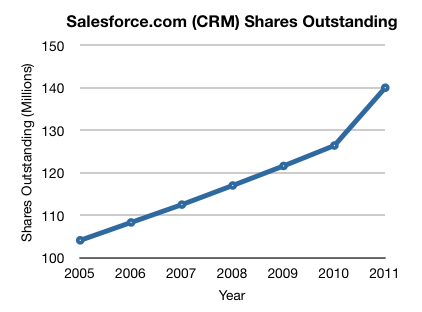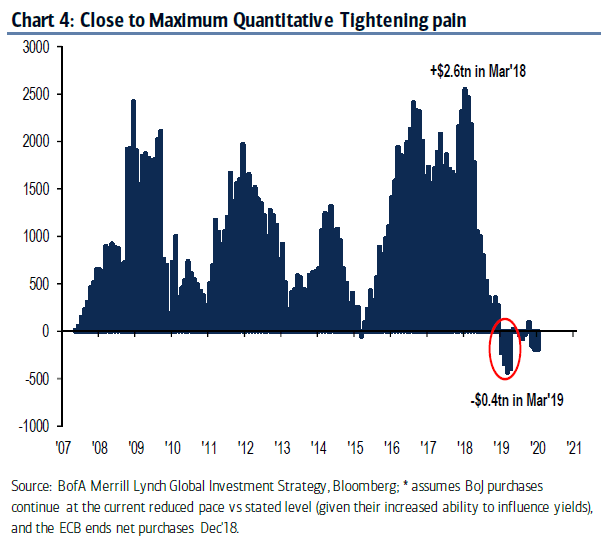Actualité
What Is The Difference Between A CPA And An Accountant?
Mise à jour : 16 avril, 2023 à 8:36
Par https://www.linkedin.com/pulse/cheap-legit-essay-writing-services-top-3-picks-2024-intextcitation-vmsee
Contents:


The single-https://1investing.in/ system tracks cash sales and expenditures over a period of time. Not only can this help you set goals, but it can also help you identify problems in your business. With an accurate record of all transactions, you can easily discover any discrepancies between financial statements and what’s been recorded. This will allow you to quickly catch any errors that could become an issue down the road. Because bookkeeping involves the creation of financial reports, you will have access to information that provides accurate indicators of measurable success. By having access to this data, businesses of all sizes and ages can make strategic plans and develop realistic objectives.
An enrolled agent is a tax professional authorized by the United States government. Their job is to advocate and assist taxpayers when they have issues with the Internal Revenue Service. To become one, you have to either have worked at the IRS or pass an EA examination. There are various career paths for accountants , from working as a forensic accountant to becoming a financial auditor or an enrolled agent. Join over 1 million businesses scanning receipts, creating expense reports, and reclaiming multiple hours every week—with Shoeboxed.
- In accounting, a ledger is a time-ordered list of accounting transactions.
- If you are proficient and comfortable using mathematics and computing figures, plus punctual, organized, and detail-oriented, it is not hard to learn how to be a bookkeeper.
- Accountants, however, can perform the duties of a bookkeeper without any extra training since they are well versed in bookkeeping tips and tricks.
Many products in this space facilitate both functions to some chart of accounts example. In other words, accounting functions utilize financial data rather than record it. They turn disparate transactions into a comprehensive picture of a business’s assets, liabilities, income, and expenses. Is the process of recording financial transactions that occur as part of your day-to-day operations. Accounting is more sophisticated and involves manipulating that transactional data to generate, refine, and interpret financial statements. Other small businesses hire a bookkeeper or employ a small accounting department with data entry clerks reporting to the bookkeeper.
Asset
Then, as your bookkeeping needs increase, bring someone on staff. It can be difficult to gauge the appropriate time to hire an accounting professional or bookkeeper – or to determine if you need one at all. While many small businesses hire an accountant as a consultant, you have several options for handling financial tasks. According to professional services agent Ageras, there are several advantages to hiring a bookkeeper to file and document your business’s financial records. Most business owners don’t have the time (or, let’s be honest, the desire) to figure out how to meticulously keep their own books and do their own accounting.
Wisconsin Logger Specializes in Harvests on Managed Forests for … – TimberLine Magazine
Wisconsin Logger Specializes in Harvests on Managed Forests for ….
Posted: Tue, 01 Nov 2022 07:00:00 GMT [source]
No matter what type of industry your business is categorized as, your company’s legal structure, bookkeeping, and accounting teams are vital to the health of your organization. And while many think these terms are interchangeable, there is a massive difference between accountants and bookkeepers when it comes to managing your company’s financial health. Accounting is the umbrella term for all processes related to recording a business’s financial transactions, whereas bookkeeping is an integral part of the accounting process.
The Relationship Between Bookkeeping and Accounting
Losses are decreases in equity from transactions and other events and circumstances affecting an entity except those that result from expenses or distributions to owners . In practice, changes in the market value of assets or liabilities are recognized as losses while, for example, interest or charitable contributions are recognized as other expenses. Gains are increases in equity from transactions and other events and circumstances affecting an entity except those that result from revenues or investments by owners . In practice, changes in the market value of assets or liabilities are recognized as gains while, for example, interest, dividends, rent or royalties received are recognized as other revenue. While not everyone has the opportunity to study accounting, a CEO needs to possess knowledge of all aspects of a successfully-run business, even when a company is hiring outsourced bookkeeping.

Bookkeeping is, of course, a part of this system, too, and should be undertaken by someone who understands the impact of non-dilutive funding, and the need to track this funding accurately. Books of Accounts which are classified as Principal books and Subsidiary books. The error must be located and rectified, and the totals of the debit column and the credit column recalculated to check for agreement before any further processing can take place. A Master of Public Administration is a degree in public affairs that prepares graduates to serve in executive positions in government and NGOs. Bookkeepers often get paid hourly wages rather than annual salaries. The average wage for someone new to the business is $21.70 per hour.
Double-entry bookkeeping
There are no formal educational requirements to become a bookkeeper, but they must be knowledgeable about financial topics and accounting terms and strive for accuracy. A bookkeeper is not an accountant, nor should they be considered an accountant. In a balance sheet, assets may exceed liabilities plus owners’ equity.
- Data like transactions, expense accrual and other financial information can be accounted for in the completion of bookkeeping tasks.
- It’s a classification scheme that enables aggregation of individual financial transactions into coherent, and hopefully informative, financial statements.
- While bookkeeping records usually serve an in-house function, accounting can produce financial statements that serve outside the business, too.
- Unlike current assets, fixed assets are not expected to be used within one year or one business operating cycle.
An adjusted trial balance is a report generated after these adjusting entries are applied. An estimation of how much a future sum of money would be worth right now. Or, what current sum is needed to equal a target amount in the future, using an estimated rate of return. The estimated worth of an asset or investment at a specific point in the future, using an assumed rate of return. The start and end dates of a fiscal year are up to the reporting organization. For example, the US government’s fiscal year begins on October 1 and ends on September 30.
Inventory
Receipts is the total amount of cash collected in business transactions over the course of one day. Students also gain firsthand experience with accounting systems, data transformation, SQL and other industry software that is vital to digital organizations’ long-term success. Employment of accountants and auditors is expected to grow 7% from 2020 to 2030, adding nearly 100,000 new jobs during that period, according to data from the U.S. Individuals entering the profession can pursue a variety of roles, including financial or managerial accountants, internal or external auditors, or government accountants.
The general ledger is a basic document where a bookkeeper records the amounts from sale and expense receipts. The more sales that are completed, the more often the ledger is posted. A ledger can be created with specialized software, a computer spreadsheet, or simply a lined sheet of paper. Just as it sounds, « variable costs » describe expenses that go up or down, depending on the volume of sales. These costs (also known as « cost of goods sold » or « cost of revenue ») includes supplies and raw materials, sales commissions, the services of independent contractors, and so on. By their nature, variable costs are often difficult to calculate ahead of time.

The bottom line of the income statement is the net profit or loss, depending on if your revenues are more or less than your expenses. Simply put, bookkeeping is more transactional and administrative, concerned with recording financial transactions. Accounting is more subjective, giving you insights into your business’s financial health based on bookkeeping information.
We’ve listed some of the key differences when it comes to the requirements and job market for each. An adjusting journal entry is an entry that occurs in the company’s general ledger at the end of an accounting period to account for unrecognized income or expenses for that period. The process of complete and systematic record keeping of the monetary transactions of an organization by the bookkeeper is known as bookkeeping. It is the activity of keeping full documentation of every single financial transaction of the entity to form a base for the accounting process. The purpose of bookkeeping is to disclose the correct picture of income and expenditure at the end of the accounting period. Some bookkeeping and accounting practices will change depending on your business model.

It is done after journaling to categorize transitions based on the accounts of the effect. Is a record of all financial information about a business or an organisation. Accountants present information to enable management to make a decision. Bookkeepers are responsible for managing the general ledger, which is a basic document of sales and receipts. Ledgers will often be digitized, but can be as simple as a piece of lined paper.
Many use the terms bookkeeping and accounting interchangeably, but the fact is the former is the first step to the latter, i.e. bookkeeping is the stepping stone of accounting. As far as the scope is of these two processes is concerned, Accounting is much wider and analytical than bookkeeping. Bookkeeping it is only a part of accounting, which creates a base for accounting.
Weighted Average vs. FIFO vs. LIFO: What’s the Difference? – Investopedia
Weighted Average vs. FIFO vs. LIFO: What’s the Difference?.
Posted: Sat, 25 Mar 2017 17:35:33 GMT [source]
This means that the right side of the equation will still balance with assets. So, if assets increase, liabilities must also increase so that both sides of the equation balance. As a financial auditor, you may work as an external or internal auditor. If you are an external auditor, you will most likely have a job at a public accounting firm, and you will need to have a CPA license, plus a college degree, and often a master’s degree. Bookkeepers who are interested in switching jobs but do not have a college degree might consider becoming an EA after a stint with the IRS.
Dernières actus LeGamer.com:
- 21/09/2024: Slotlarda RTP Oranlarını Anlamak Kazanma Şansınızı Arttırın
- 21/09/2024: Slotlar ve RTP Oranı Oyun Hakkında Bilmediğiniz 5 Şey
- 21/09/2024: Pinco Lisanslı Casino Sitesi — Canlı casino sitesii
- 21/09/2024: Try LendingTree Legitimate and you may Safe? We Look at the
- 21/09/2024: Mostbet Canlı Casino rulet – Yeni Giriş Adresi 2023




